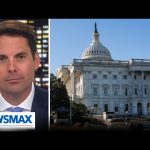America deserves the truth, not silence. This past week Dr. Avi Loeb told Rob Finnerty on Newsmax that NASA has been slow to put critical images and data about an odd interstellar visitor into the public domain, and Americans are right to ask why taxpayers are being left in the dark while questions mount.
The object in question, labeled 3I/ATLAS, was first spotted on July 1, 2025, and Loeb — speaking to Newsmax again — has repeatedly flagged a string of anomalies that deserve scrutiny, from its surprising mass to unusual polarization of light and a trajectory that doesn’t look random. Whether you’re a scientist or a factory worker tuning in after a long shift, those are the kinds of details that demand answers, not bland assurances.
Loeb has even floated the uncomfortable but intellectually honest possibility that this isn’t just a rock — he’s proposed a model where 3I/ATLAS could be a technological “mothership” that might deploy probes as it swings near the Sun, and he’s warned about windows of potential activity around the object’s perihelion and its projected November–December encounter window. These are not theatrical fantasies; they are scientific hypotheses that justify more transparency, more data sharing, and faster access for independent observers.
Of course, NASA and many mainstream astronomers maintain that 3I/ATLAS is simply an interstellar comet, citing Hubble observations that constrain its nucleus and assuring the public there is no threat to Earth. Those official reassurances matter — but so does independent verification, especially when high-profile scientists are calling for a closer look.
What has stoked suspicion is the patchy availability of solar observatory imagery and allegations from analysts that LASCO/solar images have appeared to vanish and reappear in timelines, fueling concerns that data are being edited or withheld. Whether those claims prove true or not, the perception of secrecy is poisonous to public trust and must be dispelled by full, rapid release of raw files.
Patriots who pay the bills for these space programs should demand accountability: Congress needs to ask direct questions, the Pentagon should confirm whether its sensors corroborate civilian data, and independent astronomers should be given access to primary datasets immediately. This isn’t paranoia — it’s common-sense oversight of agencies that serve the people, not the other way around.
So let’s be clear: we love science and we celebrate discovery, but we won’t accept convenient delays and bureaucratic opacity when the stakes include national security and the most profound questions humanity can face. Americans deserve open data, rigorous debate, and the kind of fearless curiosity that made this country great — and we should not rest until every image, every measurement, and every explanation is laid plain for the public to judge.




